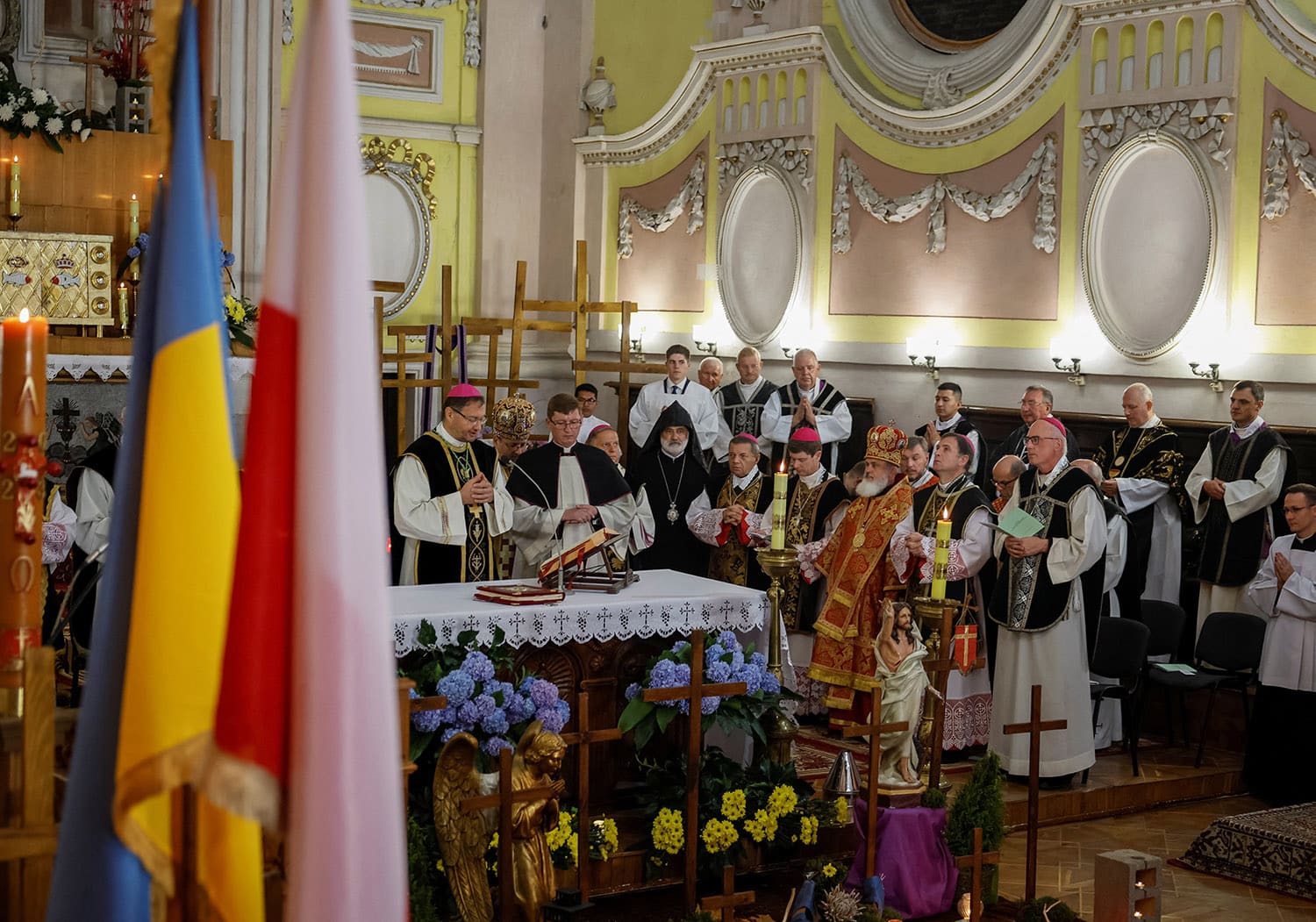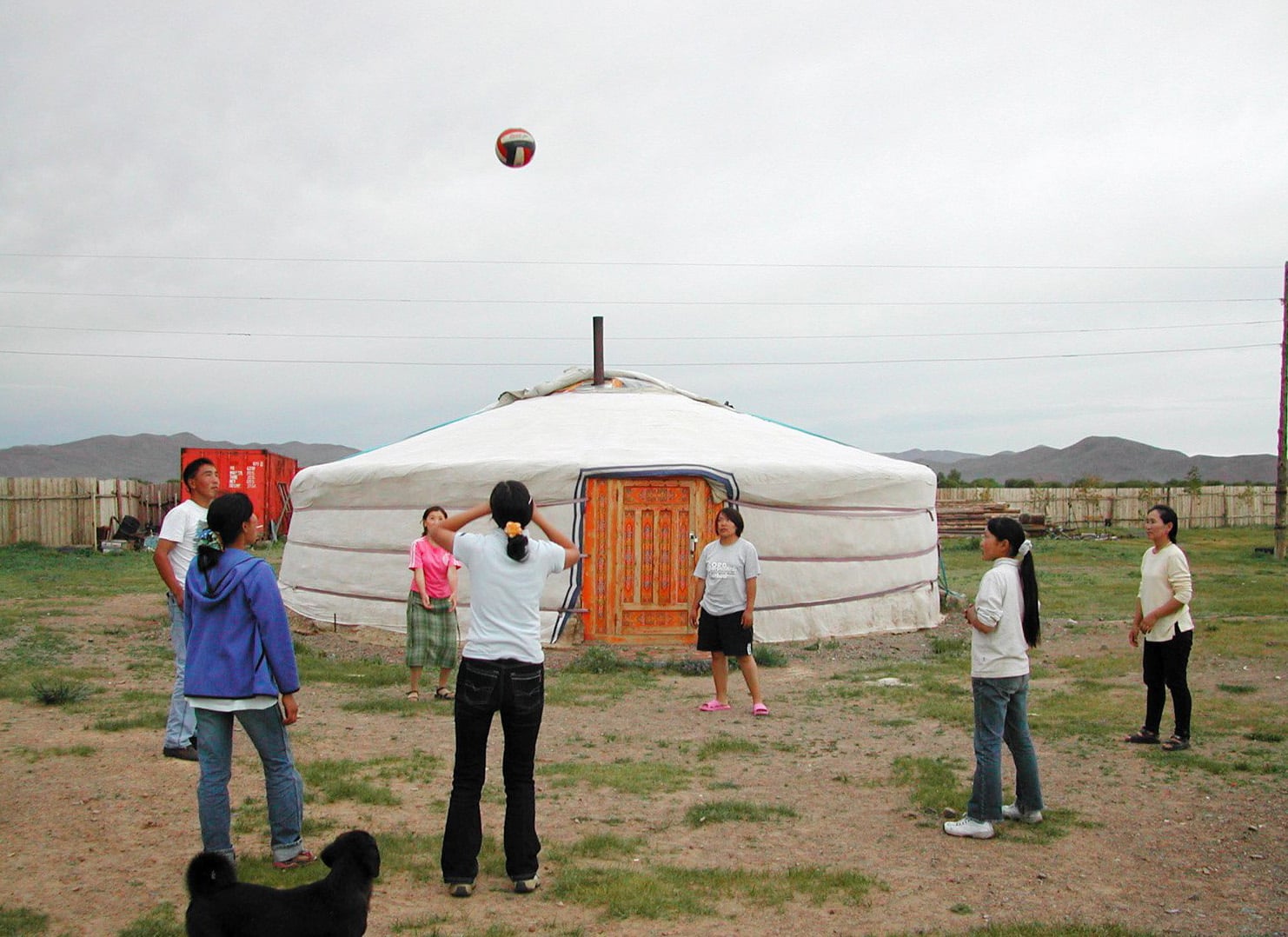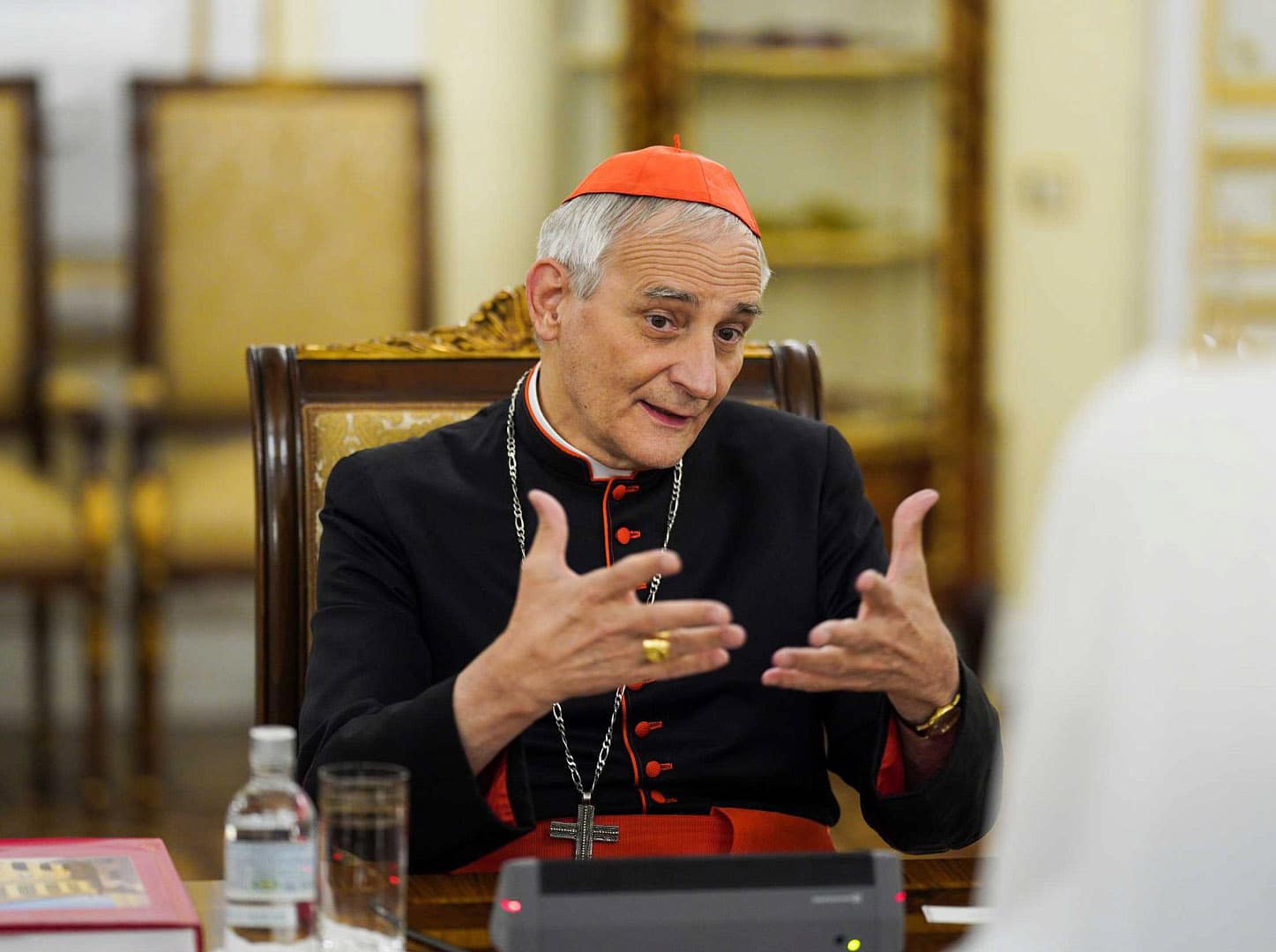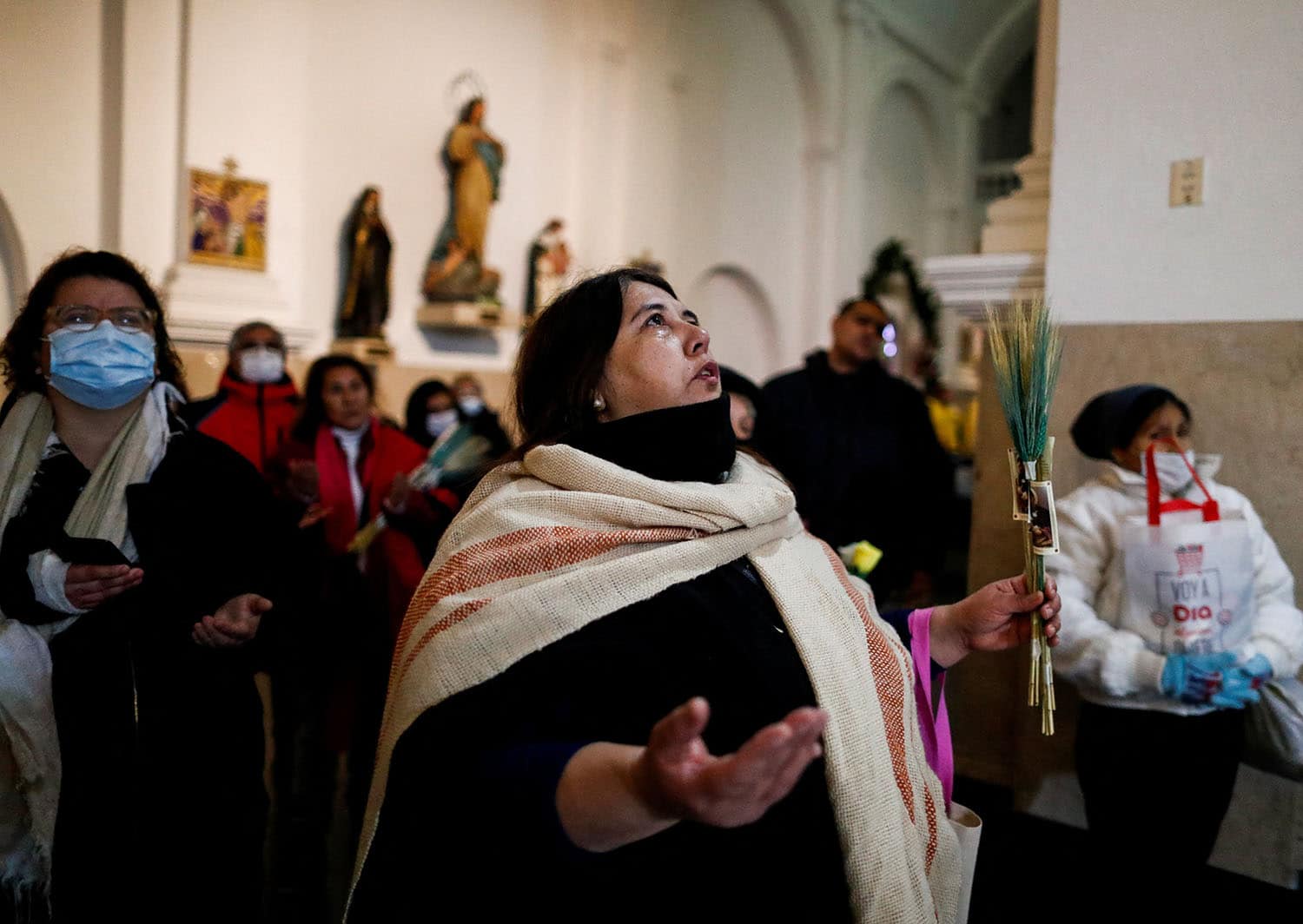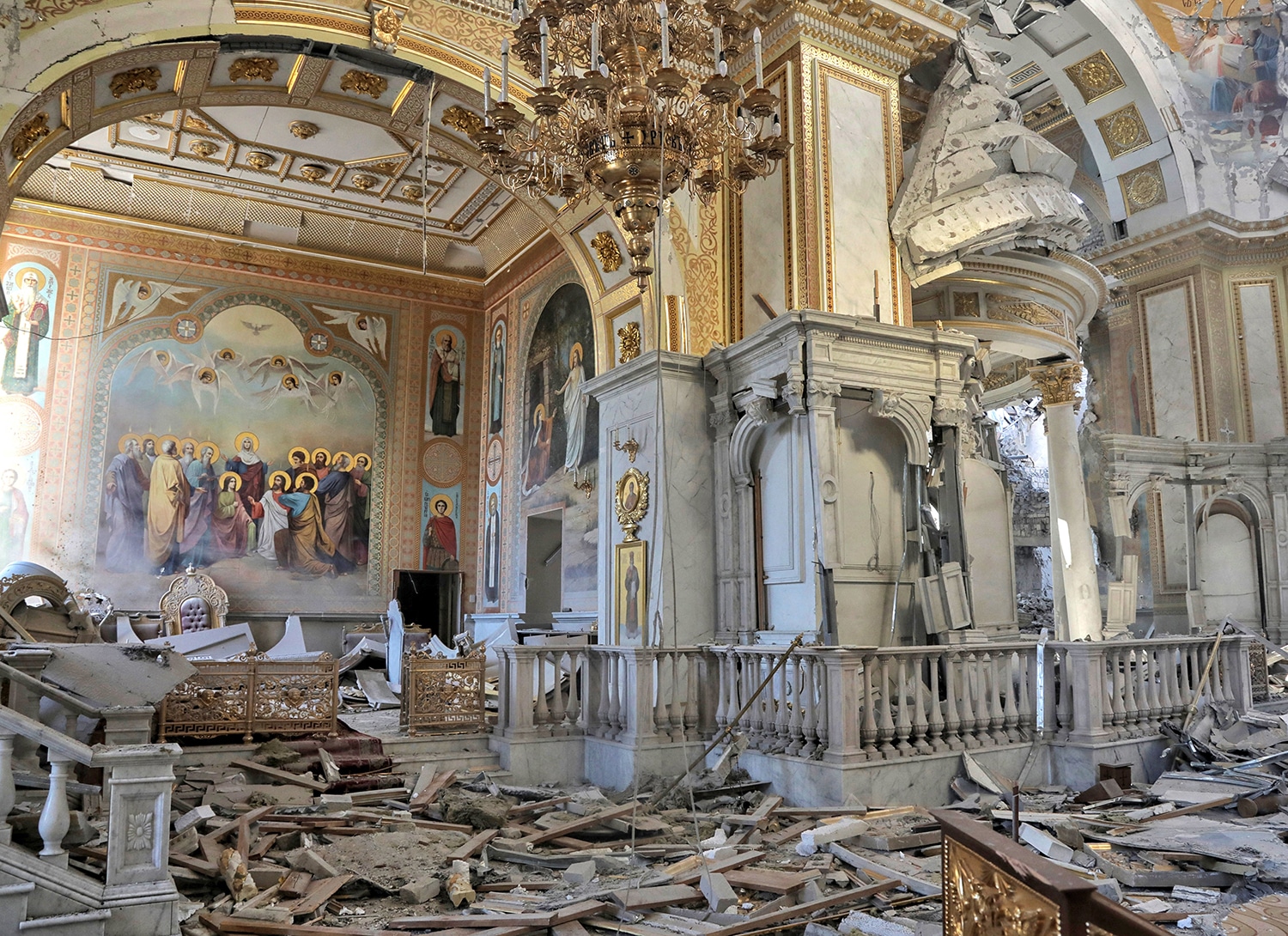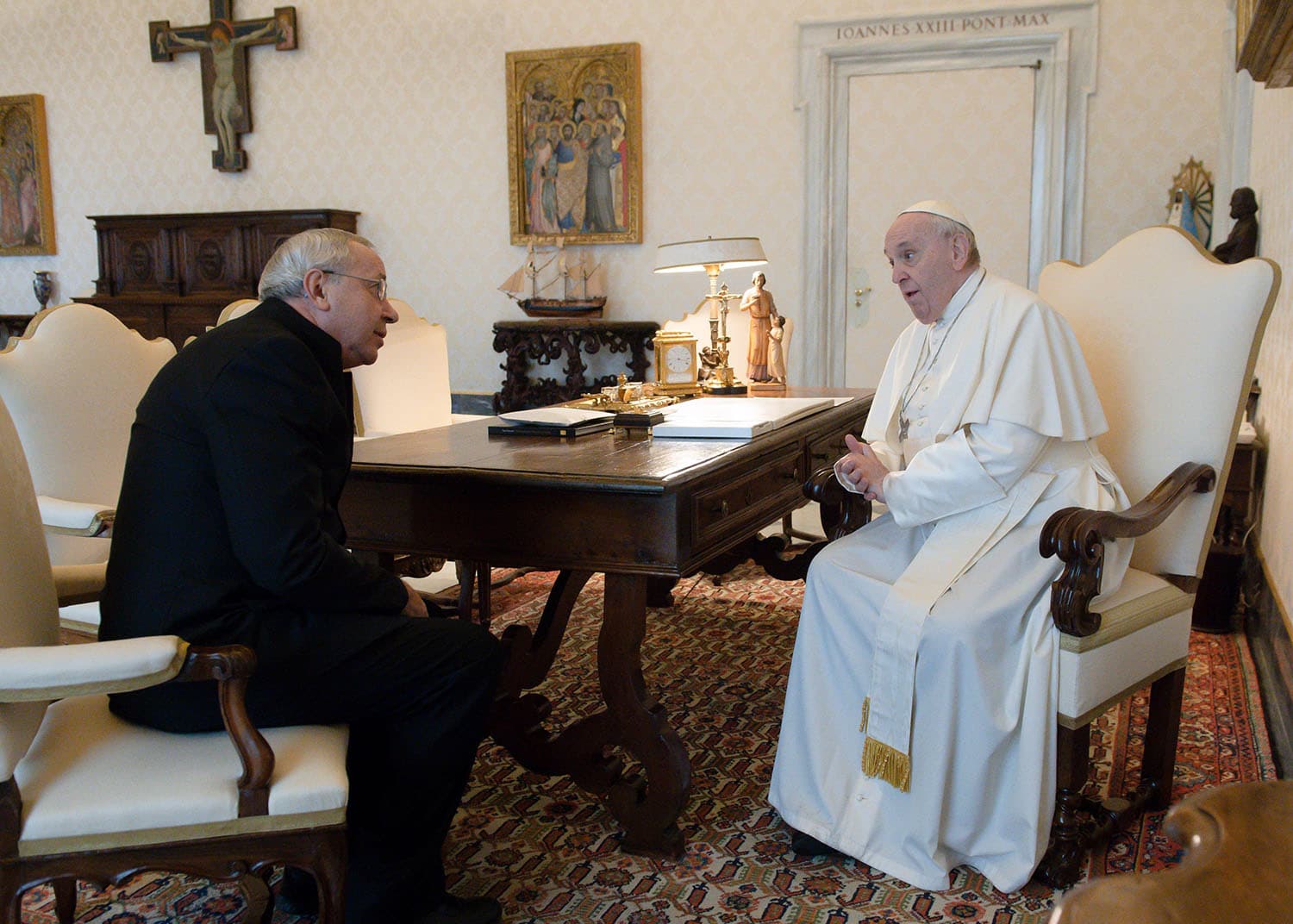(OSV News) — Church leaders in Ukraine and Poland have urged “reconciliation and unity” between their countries in the face of Russian aggression as they marked the anniversary of a wave of wartime massacres in Volhynia region.
Throughout the month of July, reconciliation prayers are held in places — often in the middle of farm fields — where entire villages vanished in 1943.
May “all those who still carry the wounds of those events in their hearts open themselves to the liberating and healing power of forgiveness, breaking the chains of hatred and (the desire of) revenge,” said bishops from Ukraine’s Greek and Latin Catholic churches.
The appeal was published July 10 to mark 80 years since the 1943 “Volhynia Slaughter,” which saw up to 100,000 Polish civilians murdered by Ukrainian nationalists, prompting revenge killings by Polish partisans — on a much smaller scale, however.
It said Catholic bishops in both countries took a “major step” toward reconciliation with joint letters of mutual forgiveness in 2005 and 2013, but were conscious that “further healing” was needed to ensure memories of “brutal” past violence would no longer “destroy future generations.”
The Volhynia region in northwestern Ukraine, incorporating Zhytomyr, Rivne, Lutsk and other cities, was ceded to Poland in 1921, but occupied by German forces during World War II.
As German control weakened in early 1943, the nationalist Ukrainian Insurgent Army, or UPA, set out to forge a post-war Ukrainian nation-state by driving Polish civilians from the region, attacking and torching up to 100 villages alone on July 11, 1943.
Although some Ukrainians helped their Polish neighbors, UPA fighters and their supporters used scythes and axes in the killings, which later spread westward to what is now southeastern Poland.
Besides mass deaths, Polish historians estimate up to a half-million Poles were displaced by the violence, while up to 15,000 Ukrainians were killed in Polish retaliation.
A researcher at the Polish Academy of Sciences’ Institute of Political Studies, Grzegorz Motyka, told Poland’s Catholic Information Agency, KAI, the massacres qualified as genocide, but said this was still disputed by Ukrainian historians, who highlighted past anti-Ukrainian discrimination by Volhynia’s Polish rulers.
Preaching July 9 at an ecumenical service of commemoration in Lutsk’s Catholic Sts. Peter and Paul cathedral — attended by Presidents Andrzej Duda of Poland and Volodymyr Zelenskyy of Ukraine — the Vatican’s Kyiv nuncio, Archbishop Visvaldas Kulbokas, said Ukraine’s defense against “Russian aggression” had now “united” the two nations, with “countless amounts of help flowing from Poland in this difficult hour.”
Meanwhile, in a joint anniversary message published July 7, the Polish bishops’ conference president, Archbishop Stanislaw Gadecki, and Major Archbishop Sviatoslav Shevchuk, head of Ukrainian Greek Catholic Church, said that “Russia’s aggression against Ukraine makes us realize that reconciliation and cooperation between our nations is a necessary condition for peace in our part of Europe.”
“For more than 50 years now, our churches have been supporting the process of Polish-Ukrainian reconciliation. I am proud of the fact that precisely the Catholic Churches are the heart and the engine of the path of mutual reconciliation, forgiveness and healing the wounds of the past,” Archbishop Shevchuk said at a July 7 commemorative Mass in Warsaw’s St. John the Baptist Cathedral.
Archbishop Shevchuk stressed that in recent months, reconciliation has been translated into concrete actions as millions of Poles opened their homes and hearts to refugees from Ukraine: “Poles always cheer for Ukraine … they are like compatriots and closest comrades who can be counted on, they are our friends and our brothers.”
“It is not easy to heal pain and injuries. But as shepherds, we have the balm of the Holy Spirit in our hands,” he said.
Archbishop Gadecki said however, as quoted by the Polish Press Agency PAP, that forgiveness and unity “cannot be achieved without reference to the truth and without calling the genocide of the Polish population in Volhynia by its name … (not) resorting to half-truths and euphemisms like ‘Volhynia tragedy,’ ‘Volyhnia crime,’ ‘ethnic cleansing’ or ‘anti-Polish action.'”
Although hushed up under communist rule to assist Polish-Soviet ties, the Volhynia Slaughter has been researched and debated since the 1989-91 restoration of democratic rule.
However, Polish victim associations have accused Ukrainian officials of honoring Stepan Bandera (1909-1959), a leader co-responsible for the massacres, blocking the exhumation of mass graves and not giving a proper burial to the murdered families, while Ukraine has complained its own nationals were mistreated in post-war Poland through forced resettlements.
The director of the Polish bishops’ Office for Helping the Church in the East, Father Leszek Kryza, told OSV News the exhumation and “dignified reburial” of murdered Polish villagers was a key priority, graphically illustrated by the recent discovery of mass graves at Bucha, Irpin and other towns in Ukraine.
However, he added that more work was also needed by historians from both countries to “unveil and build on the truth.”
“With so many Ukrainians now living on Polish territory and receiving Polish charitable help, a completely different climate is being created — and these terrible events could eventually serve as a focus of unity rather than division,” said Father Kryza. “Even today, many Westerners, and Ukrainians too, know little about what happened in Volhynia. But many families are still deeply affected by the loss of loved ones, and yearn to place names and candles at the places where victims of this genocide lie buried.”
Iryna Biskub, a Catholic linguistics professor at Volhynia National University who also teaches in Poland, told OSV News she had closely followed the anniversary commemorations with friends and colleagues, and fully supported the “Church-led process of reconciliation,” adding that the meeting of Polish and Ukrainian presidents in her Lutsk hometown had sent a “meaningful signal to the world that both nations are now close geopolitical friends.”
Meanwhile, a philosophy graduate from Poland’s John Paul II Catholic University of Lublin, Agnieszka Zielinska, whose family, now based in Silesia, was caught up in the Volhynia massacre, said people on both sides had been forced for decades by communist-era restrictions into “a state of denial and mutual blame.”
However, she added that past Polish hostility toward Ukrainians had diminished during the current war with Russia, as both countries recognized their “shared historical experience of occupation, persecution and suffering.”
“We know many Ukrainians tried to save their Polish neighbors — not all were to blame for what happened,” Zielinska told OSV News.
“The fact that churches in both countries are so closely involved guarantees the process of reconciliation will be genuine and honest, as relations between us gain a new quality,” she said.
However, Father Kryza cautioned that “time and patience” would also be required as further steps were taken.
“With Ukraine in a state of war, everything is happening in a different context — and while some say Poles and Ukrainians are already united, it’s clear that further understanding and agreement are still needed,” the Polish director told OSV News.
“Great efforts are still being made to divide and play us against each other, to ensure Poles and Ukrainians remain hostile and distrustful. But we will all gain strength through unity, and every step we take toward this — including the huge efforts being made by the churches — assumes vital importance.”

